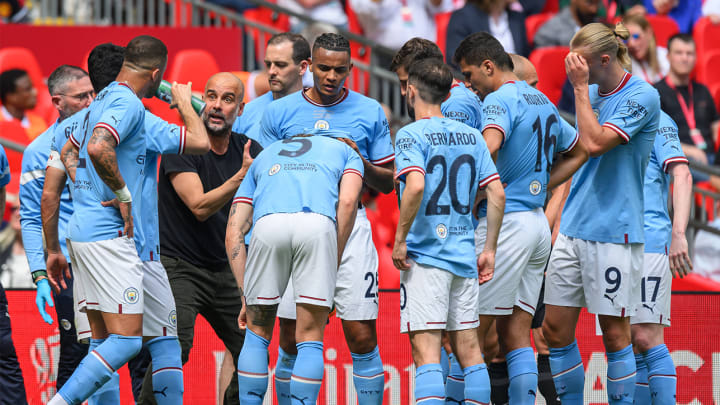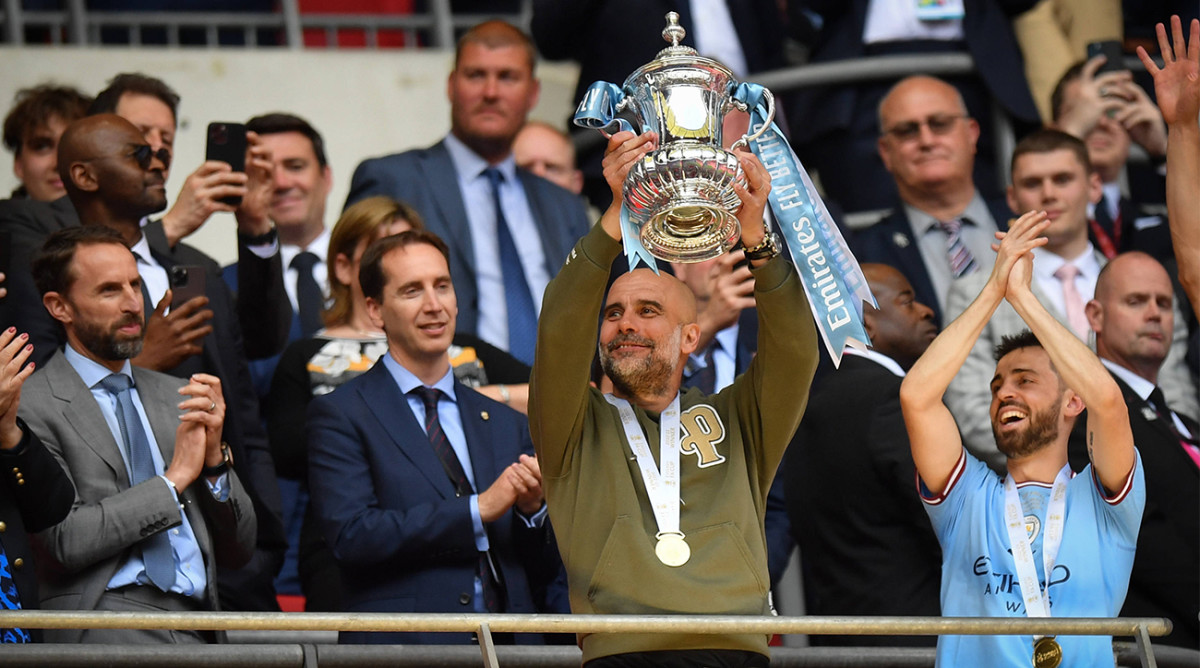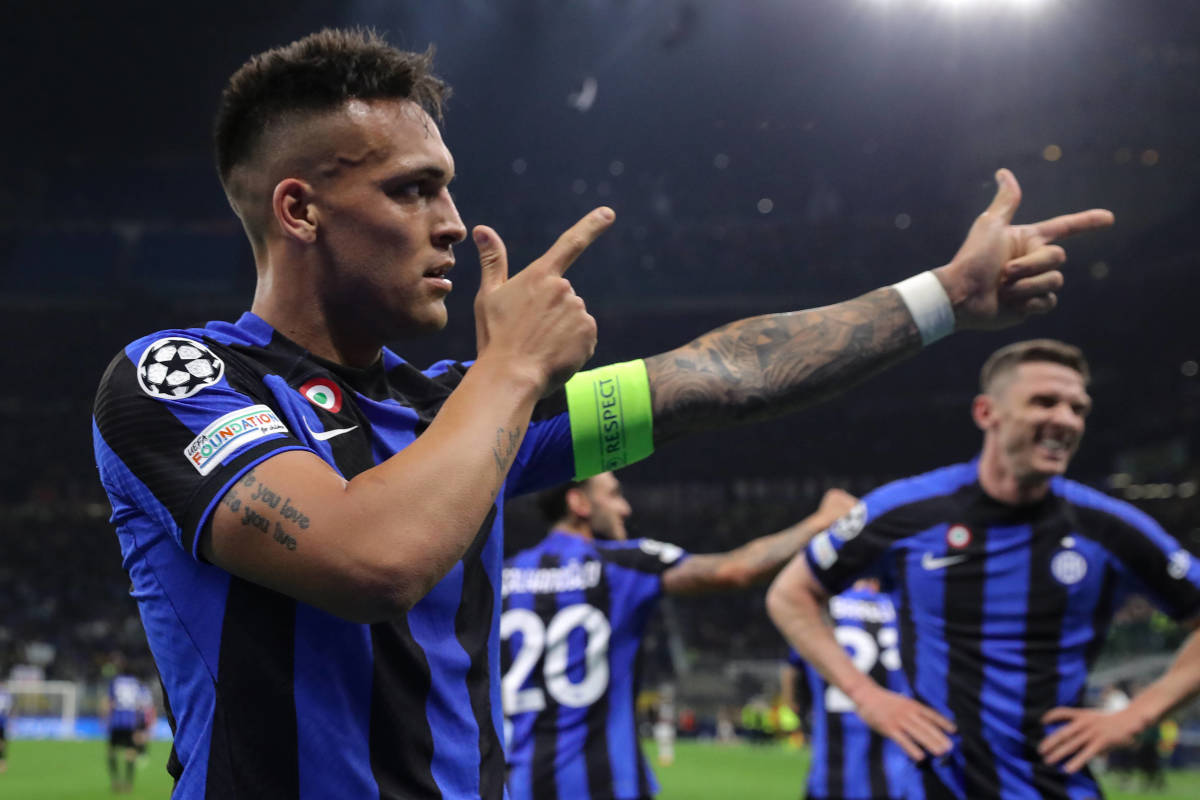Man City’s Pursuit of European Glory Is 15 Years in the Making

When Sheikh Mansour bought Manchester City 15 years ago, this is what he dreamed of. The seven Premier League titles, three FA Cups and six League Cups are an essential part of what City has become, but the Champions League was always the target. After repeated near misses and increasingly absurd exits, Saturday, if all goes to form, will mark not only the culmination of the quest for European glory but also only the second treble in English history.

Inter Milan, of course, can win. This is soccer, and surprises happen. But it’s been a long time since a team went to a major European final as highly fancied as City is, probably since Real Madrid against Bayer Leverkusen in 2002 (when Madrid won) or Barcelona against Steaua Bucharest in 1986 (when Barça lost). That’s in part because Inter finished third in Serie A, fully 18 points behind champions Napoli, and in part because City, since losing to Tottenham on Feb. 5, has been so dominant. In the 27 games since, it has been behind for a total of just 15 minutes.
City has been close before. In 2021, it reached the final and faced Chelsea, which had finished 19 points behind it in the league. But Pep Guardiola picked a surprising lineup, omitting Rodri and Fernandinho, seemingly in an attempt to dominate possession and so alleviate the threat of being countered against. City lost fluency, and Chelsea won 1–0. That was just the most blatant example of Guardiola apparently undermining his own side’s chances by overcomplicating his approach in key European games.

Given how impressive City has been over the past four months, given the consistency of selection during the title run-in, the assumption is Guardiola will not be lured into overthinking this time. The greatest gift Erling Haaland has given City, perhaps, is less his goals than the fact he simplifies the game.
There is, though, one potential glitch. City’s best performances came with a 4-3-3 in which John Stones stepped up from center back to occupy a position deep in the midfield, creating a 3-2-2-3, a shape akin to the old W-M formation. That has been very successful, both in forming a trapezoid 3–2 shape at the back that seems effective at preventing the counter, and in offering additional passing angles to allow City to control the midfield, without reducing Haaland’s effectiveness in direct attacks by asking him to drop deeper.
But Inter operates—unusually for modern football—with a front two, probably of Lautaro Martínez and Edin Džeko. If Stones steps up, the risk is Rúben Dias being left with two forwards to mark. That can be mitigated by having Kyle Walker and Manuel Akanji tuck in to form a more compact three at the back, or Stones could simply stay deep. There will at least have to be some countermeasures taken, however, and that perhaps offers the possibility of Guardiola overcomplicating things.

City’s record against a front two this season is less impressive than against a single central striker, keeping a clean sheet in just 25% of games as opposed to 37%. It also picked up just 2.15 points per game against a back three as opposed to 2.44 against a back four. It’s no coincidence the only team to beat City twice this season, Brentford, put the two together and, like Inter, plays a 3-5-2. Brentford’s 2–1 win at the Etihad in November was probably the best performance against City in the past year and perhaps offers a model: three center backs and three deep-lying central midfielders clogging up the center, and mobility and pace from the wing backs to link to a distant front two whose main job is to find space and disrupt City’s defensive patterns.
But the conversation is couched in terms of how Inter might upset City; the expectation is still of City domination. It has spent money, but it has spent it extremely wisely. There are great players there, but all fit the system Guardiola has devised. This is the apogee of sportswashing: the intelligent use of massive resources. Guardiola, the greatest coach of his generation, has produced another genuinely great side. A third Champions League should be within his grasp, and, if his City wins the treble it will rightly be regarded as one of the greatest sides of all time—albeit with the asterisk of the 115 charges of financial irregularities brought against it by the Premier League.
The shame is the cost, not financial but in terms of the reputation, integrity and sustainability of soccer.
